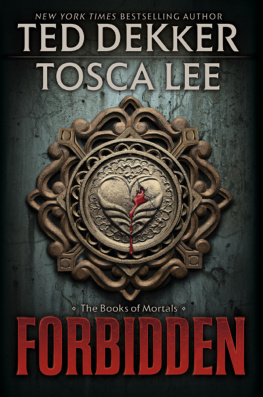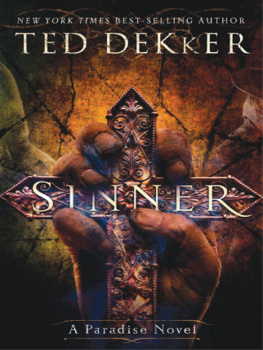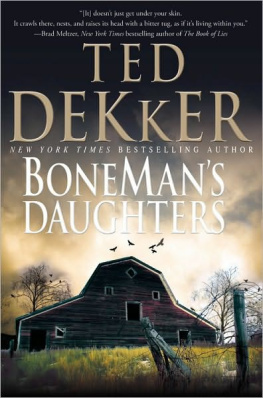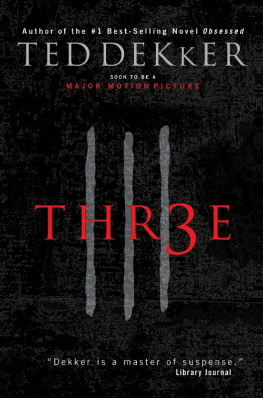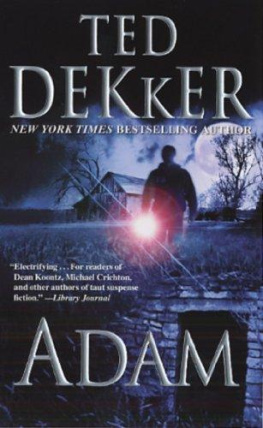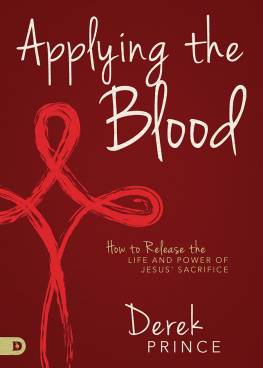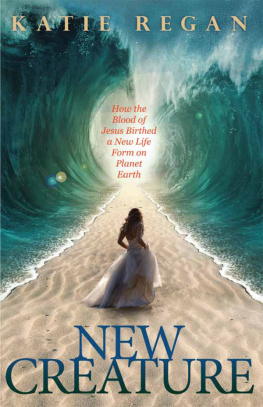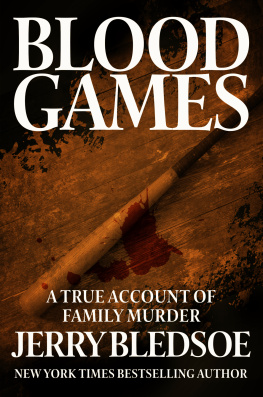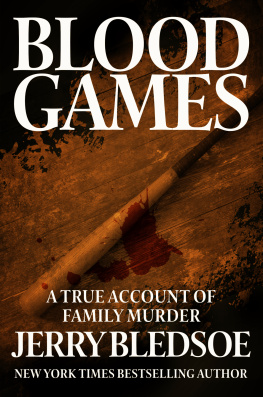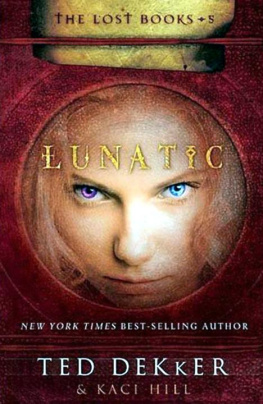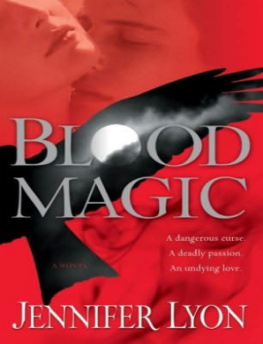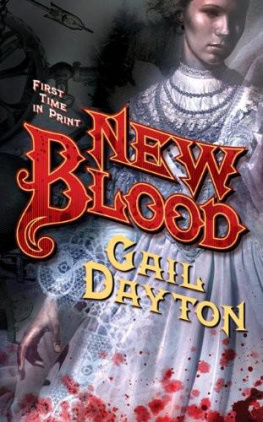TED DEKKER is a New York Times bestselling author with more than five million books in print. He is known for stories that combine adrenaline-laced plots with incredible confrontations between unforgettable characters. He lives in Austin with his wife and children.
TOSCA LEE left her position working with Fortune 500 Companies as a Senior Consultant for the Gallup Organization to pursue her first love: writing. She is the critically acclaimed author of Demon and Havah and is best known for her humanizing portraits of maligned characters. She makes her home in the Midwest.

T here was never a body.
Not even at a funeral. Mourners sat angled toward one another in the stiff pews to avoid looking directly at the empty casket and the destiny hanging over them all. They all knew that only one of two things happened when the body died, one outcome more likely than the other.
The terrible outcome, of course.
Rom, the twenty-four-year-old son of Elias Sebastian, sat in a back pew by himself. He was a plain man by any measure. Not unattractive, but neither was he truly beautiful by the standards of the Order, which reserved true beauty for royalty.
Hed sung earlier in homage to the dead mans life. It was a humble yet noble job, singing for the dead. Humble because any artists life was humbleonly by the grace of Sirin, whod written about the educational merits of the arts, did artisans find work at all in a world unmoved by creative gifts. Noble because being near the dead was fearful business for most. But Rom didnt mind. He needed the work, and the dead needed their service.
Finished with his job here, he folded the funeral program lengthwise as he waited for a good moment to slip away. There, on the upper flap, was the name of the deceased: Lucas Tavor. Rom folded it again. There was Tavors age: sixty-eight. Not so old in this advanced world where one might live to 110 or 120.
He glanced at the mans empty coffin lying atop its metal carriage between the front pillars of the great basilica. It was one of the finer basilicas in the city, in Roms opinionnot because of its size, as it was far from the largest, but because of the intricate stained glass above its altar.
All basilicas boasted their treasures, but this depiction of Sirin, the martyred father of the Order, was more exquisite than the rest. The numbered, compass-like marks of his halo spread like a fractured sunburst above his head, even on a dull day. It was the universal picture of peace, an inspiring image of the man who had preached freedom from the excesses of modern life and from the snares of emotion.
Sirins right hand cradled a dove. His left rested on the shoulder of a second man: Megas, holding the bound Book of Orders, canonized under his rule. Every basilica housed the same image, but none as intricate as this.
The priest stood behind the altar, the ordinal rays of Sirins halo reflecting faintly upon his shoulders. Two clerics flanked him on the dais as he smoothed the pages of the Book of Orders upon its stand.
Born once, into life, we are blessed.
We are blessed, echoed the assembly, perhaps fifty in all. Their murmurs rose like specters to the arched vault overhead.
Let us please the Maker through a life of diligent Order.
Let us please the Maker. The mouths of the clerics moved with the congregation. Beyond them on the dais, the silver censers that exhaled incense through normal assembly hung empty upon their chains.
We know the Maker exists by his Order. If we please, let us be born into the afterlife, not into fear, but Bliss everlasting.
Bliss. The eternal absence of fearor so it was said. Though Rom was less given to fear than most, it took some abstract thinking to imagine being forever untouched by at least some tinge of it.
It was said other emotions existed before the human race evolved, but they, too, were difficult to imagine. These sentiments of a baser age, like excised tumors, never reappeared; humanity finally resisted the black plague that had almost destroyed it.
Rom wasnt sure he even knew the words to describe them all. And those he did know were meaningless to him. That archaic word passion, for example. Try as he might to grasp this thing, he could only conjure up thoughts of varying degrees of fear. Or another: sorrow. What was sorrow? It was like trying to imagine what his life would be like if hed never been born.
No matter. Humanitys one surviving emotion granted Order in this life and the possibility of Bliss beyond. Trying to imagine such a future, though, was enough to make his head hurt.
In front of Rom, a curly-haired boy turned around in the pew. Sticking his fingers in his mouth, he stared bug-eyed as Rom continued to fold the paper program. Rom held up the small project so the boy could see the thing taking shape between his fingers.
A eulogist approached the podium, printed page in hand. The heads of those assembled were now fixed on that empty coffin, no longer able to look away.
Lucas Tavor was sixty-eight years old, the man read.
He fell, a young woman two pews up whispered. The basilicas unrestrained acoustics carried her words to Rom. Broke his hip. One of his children found him a day after it happened.
It was easy enough to surmise the rest of the story. Society had long embraced the custom of transferring the infirm, the severely injured, and the feeble to an asylum under the auspices of the Authority of Passing. There, humans closer to death than to life might live out the minority of their days, sparing their peers the caustic reminder of deaths inevitable pall. Thus, there was never a body at a funeral, because the one for whom the funeral was held often had not yet died.
Not technically, at least.
Rom stood and adjusted the strap of his shoulder bag. Slipping from the pew, he handed the finished paper crane to the boy, who accepted it with wet fingers.
Outside, on the steps of the basilica, the city spread out before him, concrete-gray beneath the ominous clouds of late afternoon. On each of the citys seven hills, the spires and turrets of centuries-old buildings stabbed at the heavens like so many lances piercing a boil.
This was Byzantium, the greatest city on earth, population five hundred thousand, home to three thousand of the worlds twenty-five thousand royals, who had come from every continent to serve in her government and state-run businesses. It was the center of the earth, to which all eyes turned in matters politic and religious, social and economic. It was the seat of power to which all earthly dominions had deferred since the end of the Age of Chaos five centuries before, when the world had bowed to the great powers of the Americas and Russia.
Chaos. It had nearly killed them all. But humanity learned from her mistakes, and Null Year had signaled a new beginning for a new world cleansed of destructive passions. Peace had ruled in the 480 years since, and Byzantium was the heart of it all.
The city was more crowded than normal as it prepared to host the inauguration of the world SovereignFeyn Cerelia, daughter of the current Sovereign, Vorrin, of the royal Cerelia family. Never before had a future Sovereign been the direct descendant of a ruling Sovereign, and yet the random hand of fate was about to change history. And so Feyn Cerelias inauguration was considered a particularly auspicious event, one that would swell Byzantiums population to nearly one million for days.
Her image had already graced the banners on streetlamps and city buildings for months. For weeks, train cars had brought construction equipment, barricades, and food from all parts of the world to supply Byzantium for the occasion. The black cars of the Brahmin royals and those in service to them had become a common sight on streets unaccustomed to motorized congestion. There had been no mass production of automobiles since the Age of Chaos, and no roadways beyond the city were intact enough to justify the vehicles exorbitant cost. Businesses carried out their trade by rail, subway, rickshaw, or private courier. Rom himself had never driven a car.

